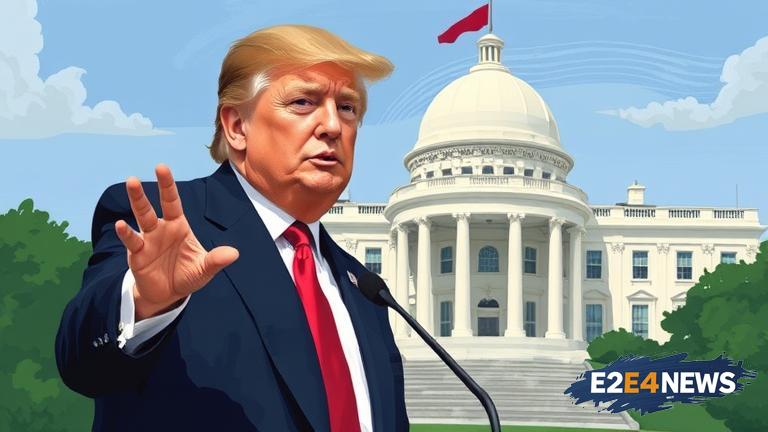President Trump’s administration has unveiled a new education funding plan that has sparked controversy and debate among educators, lawmakers, and advocacy groups. The plan, which aims to reform the country’s education system, has been met with criticism and concern from many who believe it will have a negative impact on schools and students. One of the main concerns is that the plan will divert funding away from public schools and towards private and charter schools. This has led to accusations that the administration is attempting to privatize the education system. Many educators and lawmakers have spoken out against the plan, arguing that it will exacerbate existing inequalities in the education system. They also argue that the plan will lead to a lack of accountability and oversight, as private and charter schools are not subject to the same regulations and standards as public schools. Furthermore, the plan has been criticized for its lack of funding for programs that support low-income and minority students. The administration has argued that the plan will provide more choices and opportunities for students, but many are skeptical of this claim. The plan has also been criticized for its potential impact on teacher unions and collective bargaining rights. Some have argued that the plan is an attempt to undermine the power of teacher unions and reduce their ability to negotiate for better pay and working conditions. The controversy surrounding the plan has highlighted the deep divisions and disagreements that exist in the education reform debate. Despite the criticism, the administration has remained committed to the plan, arguing that it is necessary to improve the country’s education system. However, many are calling for a more nuanced and comprehensive approach to education reform, one that takes into account the complex needs and challenges of the education system. The debate over the plan is likely to continue in the coming weeks and months, with many educators, lawmakers, and advocacy groups pushing for changes and improvements. The plan has also raised questions about the role of the federal government in education policy, with some arguing that it should play a more limited role. Others argue that the federal government has a critical role to play in ensuring that all students have access to a high-quality education, regardless of their background or zip code. The controversy surrounding the plan has also highlighted the need for greater transparency and accountability in education policy, with many calling for more data and research to inform decision-making. Ultimately, the fate of the plan remains uncertain, with many predicting that it will face significant opposition and challenges in the coming months.
